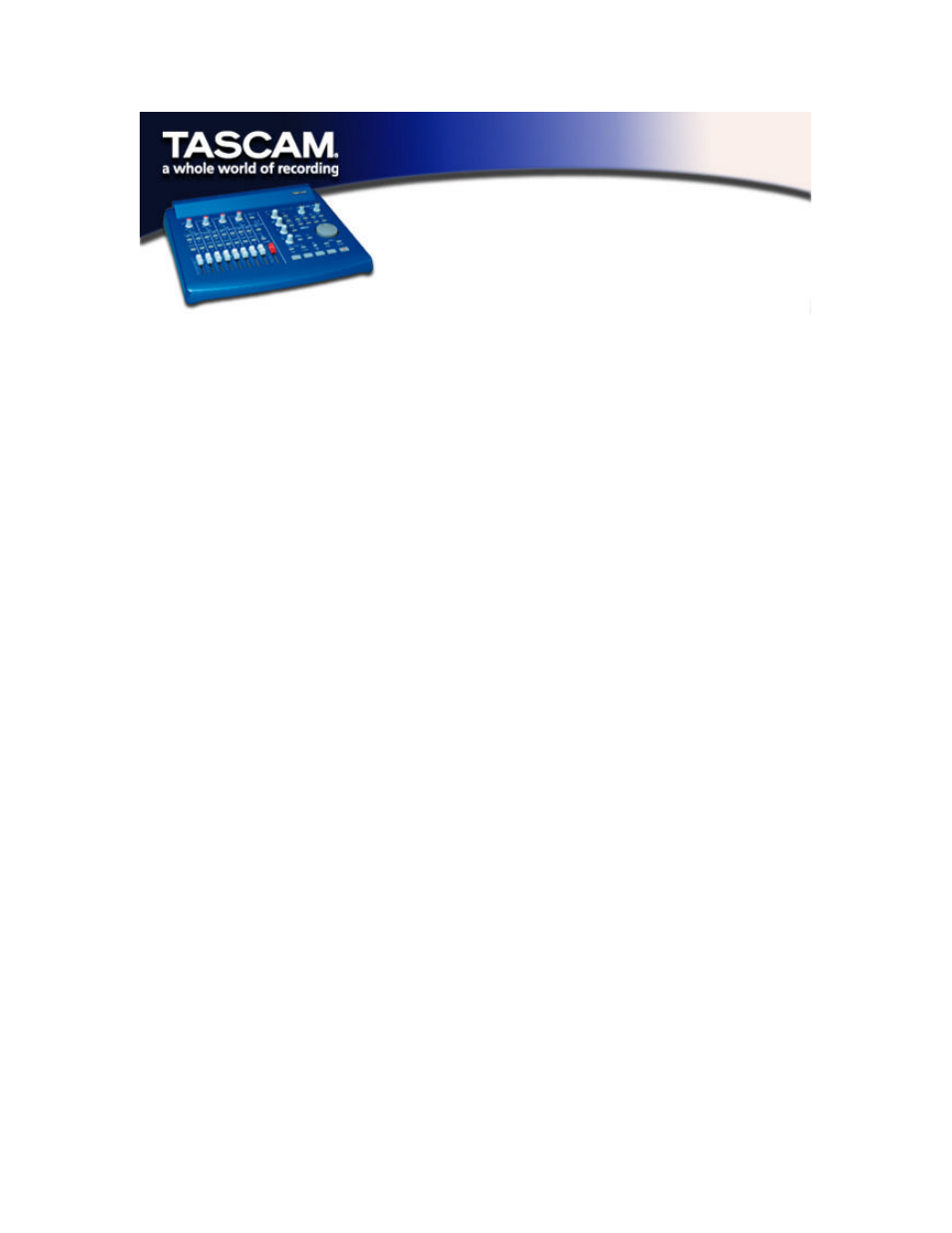Teac US-428 with Steinberg’s Nuendo User Manual
Setting up the us-428 with steinberg’s nuendo

Setting up the US-428 with Steinberg’s Nuendo
The US-428 is fully supported under Nuendo v1.xx for Windows and Mac, including ASIO 16 and
24 bit drivers and control surface mapping. We suggest you make sure you’ve got the most
current update.
Before setting up the US-428 to work with Nuendo, please install the US-428 v3.0 drivers. (Refer
to the document on installing the US-428 drivers with either Win98SE/ME or Win2000.) Begin the
setup procedure below with the US-428 plugged in and power on. If you have not already done
so, install Nuendo.
Installing the US-428 under Nuendo:
•
Open the Nuendo application
•
From the D
EVICES
menu, choose D
EVICE
S
ETUP
.
•
Select the A
DD
/R
EMOVE
tab. Select “T
ASCAM
US-428” from the device menu and click
A
DD
. T
ASCAM
US-428 should appear on the list of loaded devices on the left side of the
window.
•
Highlight US-428 and click the S
ETUP
tab. Select US-428 C
ONTROL PORT
for MIDI I
NPUT
and MIDI O
UTPUT
.
•
Highlight VST M
ULITITRACK
. In the ASIO D
RIVER
pull-down menu, select ASIO US-428
(16- or 24-bit) driver.
•
Highlight D
EFAULT
MIDI P
ORTS
. Select
US-428 MIDI 1 or 2 from the I
NPUT
and O
UTPUT
drop-down menus.
•
From the D
EVICES
menu, choose VST I
NPUTS
. Make sure at least one pair of inputs for
the US-428 are set to active.
If you’re running Nuendo for the first time, you’ll need to create a new project. Select F
ILE
/N
EW
P
ROJECT
, and choose E
MPTY
P
ROJECT
.
You’ll then need to add tracks to the project. Select the P
ROJECT
/A
DD
T
RACKS
menu. This can
be done one-at-a-time by choosing the type of track (
AUDIO
, MIDI or
GROUP
), or by selecting
M
ULTIPLE
.
Once you’ve created Audio tracks, you can open the VST Mixer (D
EVICES
/VST M
IXER
, or press
F1 on the US-428 or F3 on your computer keyboard). You should have control of Nuendo’s
faders, mutes, transports and other basic functions, as well as EQ and Aux sends. The controller
mapping for the US-428 within Nuendo lagely follows the same protocols as Cubase and
Cubasis. Refer to the US-428 manual for more info on these functions. Refer to the Nuendo
manual for more info on basic operations of the program.
